Our last blog on Deep Work covered the practise of replacing hours spent on White Work with focused time spent on the demands of Deep Work. While it goes without saying that many White Work tasks are still necessary for the day-to-day running of any business, they are simply lower value or lower impact.
In order to prioritise Deep Work over White Work, the advice that is often given is to learn to say “No”. Now, we all get how outdated (and frankly boring) that advice is, and in reality, it is not very helpful. After all, learning to say “No” is a nuanced process; knowing what to say “No” to, and how to say it, is just as important as the act itself.
Learning the art of saying “No” sounds great in theory, but the question I always encounter is: “So, can you tell me how do it?” For the remainder of this blog, I’ll certainly do my best!
Learning to say “No”
For many, especially the people pleasers among us, saying “No” in any context can be hard. I say this as a former people pleaser. While saying it, or learning to say it can be challenging, it will all be worthwhile when doing so aligns with you and your goals.
Firstly, I recommend a bit of a perspective shift. It’s not about saying “No” for the sake of saying “No”. It’s about creating the time, space and energy to focus on the things you really want to say “Yes” to. Instead of asking yourself if you feel comfortable saying “No”, ask yourself if you are comfortable with the trade-off.
When you choose to do one thing, that often means sacrificing the opportunity to do something else. Are you ok with the ‘thing’ you are sacrificing, whether it’s your time, your energy, or the opportunity to do something else that is more important, either professionally or personally?
With this in mind, you can then start to practise building other skills that align with the Deep Work mantra.
How to effectively engage in Deep Work
When engaging in Deep Work, there are a number of skills to learn and steps to take, which can elevate the experience by enabling you to maximise your time:
- Prioritise rigorously
Use tools like the Eisenhower Matrix to categorise tasks by their urgency and importance. Focus on tasks that are important and contribute to bigger and potentially longer-term goals. Be wary of tasks that seem urgent, but don’t align with your key objectives.
- Delegate effectively
Be creative about how you delegate. Delegation is not about offloading work; it is centred on empowering others to contribute, while freeing up your time for tasks that require your unique skill set and expertise.
- Batch similar tasks
Group similar low-priority tasks together and allocate specific time to handle them. For example, set aside a time block for answering emails, rather than answering sporadically throughout the day.
- Limit meetings and calls
Evaluate the necessity for each meeting you are planning or invited to. If a meeting can be replaced with a quick phone call or an email, opt for that. When meetings are necessary, keep them focused and concise.
- Use technology wisely
Use productivity tools and software to stay on top of your priorities.
- Reflect and adjust
Regularly reflect on your work processes and outcomes. Be willing to adjust your habits as needed to make improvements where necessary.
Take some time over the coming weeks to actively reduce White Work by saying “No” when you feel it’s required, and by integrating some of the above practises into your daily routine. I invite you to message me to fill me in on any particular challenges you face, and I will aim to respond to these obstacles in an upcoming blog post.
If you want to learn more on the topics covered in this blog, register your interest in ‘The Career Activist Academy’. To be first to know when the academy is open for new participants, add your name to the insiders list here.







